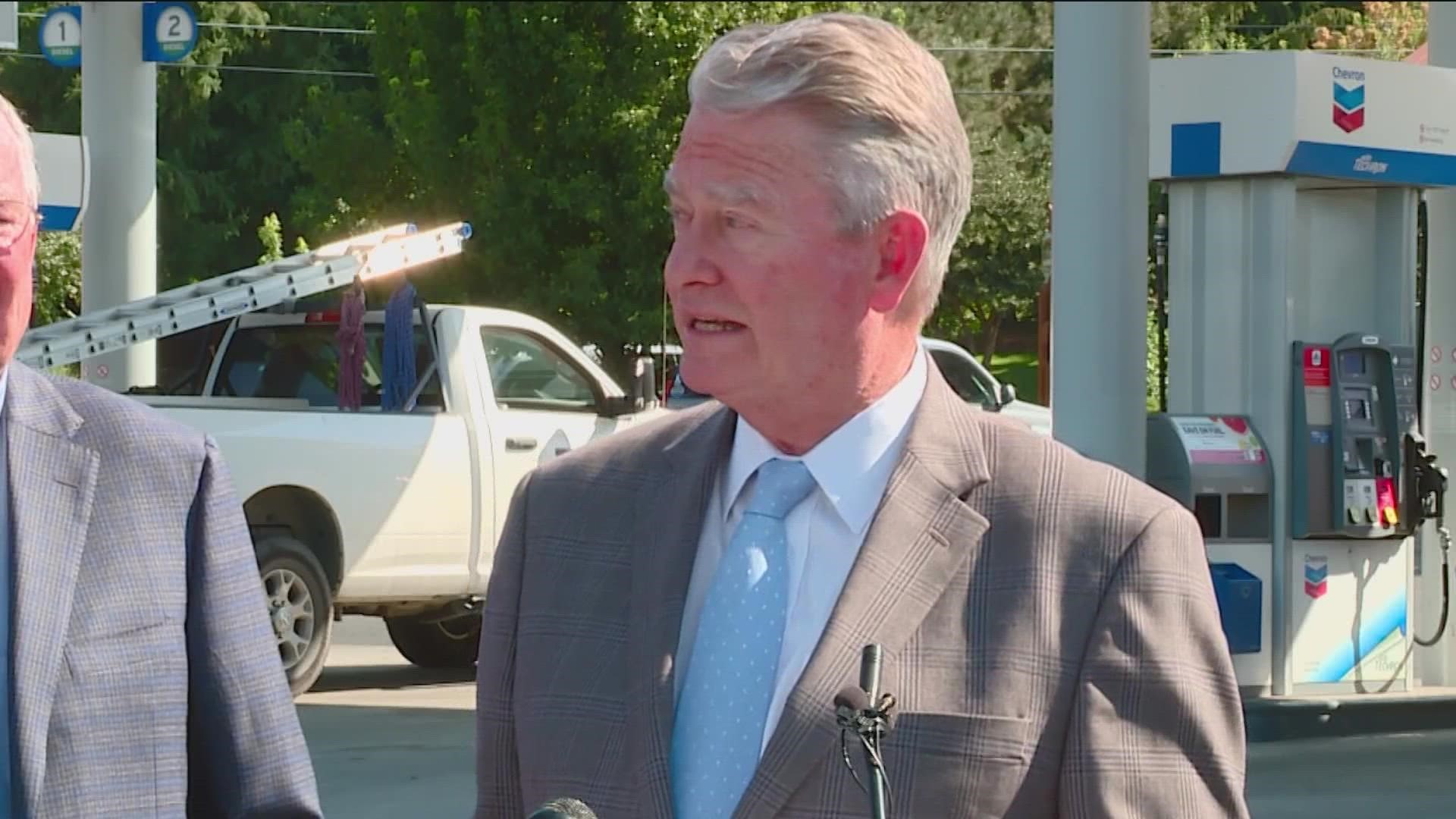BOISE, Idaho — Are political debates in Idaho dead forever? The answer is likely no, but the new norm of not debating in major statewide races continues.
Republican incumbent Governor Brad Little said he won't debate on statewide television ahead of the November general election. Little’s opponent from the Idaho Democrats, Stephen Heidt, told KTVB Tuesday he won’t debate either.
Dr. Stephanie Witt, an Idaho politics expert at Boise State University, said there are certainly negative consequences of candidates skipping major debates.
“I’m a little old fashioned when it comes to debates. I think those are a very valuable way for the voters to see all of the candidates, for the races, to evaluate what their stances on issues can be and to become familiar with that person," Dr. Witt said. "So, I see it as a great loss that we are seeing increasing numbers of candidates who opt out of the debates."
Some critics of statewide debates in Idaho argue it is pointless because Republicans tend to win those races no matter what is said in a debate. A Democrat has not won a statewide office since 2002, 20 years ago.
So, while that take is true, Dr. Witt points out that debates are far more than just a one time back and forth.
“This is still a chance for voters to evaluate these different candidates. There may be ideas that get batted around in a debate that can be followed up later by that candidate of either party when they win and by the legislature," Dr. Witt said. "So, I think there's some value in seeing our candidates evaluate ideas, talk about what they might bring that’s new and without the debates, we lose that opportunity."
Unlike recorded TV advertisements or social media content, Dr. Witt said the value in live debates show us organic interactions, ideas, and critical thinking skills from candidates.
"How do they think on their feet? What do they do when they're challenged? How do they respond to a follow up question? And of course, a campaign ad never has a follow up. So, the opportunity for the moderators in these debates to say what you said is interesting, let me ask you a follow up," Dr. Witt said. "You don't get that online in an ad or a produced YouTube video and so, I think the voters ultimately are the losers when nobody will come to the debates."
So, why are candidates, mostly Republicans, declining invitations for debates on free, statewide TV so voters can watch for themselves in real time the difference between candidates? Dr. Witt said it is likely linked to a national message we have seen rise in popularity in recent years.
“I think some of it has to do with GOP messaging around the mainstream media not being reliable or that they have an inherent bias and so if the debates are hosted on these mainstream TV networks, for example, or PBS, that they may not be fair and as a strategy, I understand the Republicans bowing out more than I do the Democratic candidates, which has also happened in this season,” Dr. Witt said. "Also, if you are pretty sure you're going to win, why even give the opponent the standing to be shown together with you in a debate like there's a real contention. So, I think that in some cases, maybe in the governor's case, in some of the statewide, the congressional races, the thought is, if I concede to be in the debate, then I'm conceding I have a credible opponent and they don't want to give that stature to those other candidates.”
Aside from the not having a debate fact, Dr. Witt said there are other things to consider about not having political debates, and the messaging in an election season.
“The thing I'm afraid that this does is it reinforces the echo chamber nature of getting all of our news from social media. So, you only look for and see the people whose feeds are similar to yours and who reinforce what you already think," Dr. Witt said. "The debates used to be one of those places where we could listen to people with whom we do not agree and try to find some common ground, or at least look at how we might look at our common problems together."
Join 'The 208' conversation:
- Text us at (208) 321-5614
- E-mail us at the208@ktvb.com
- Join our The 208 Facebook group: https://www.facebook.com/groups/the208KTVB/
- Follow us on Twitter: @the208KTVB or tweet #the208 and #SoIdaho
- Follow us on Instagram: @the208KTVB
- Bookmark our landing page: /the-208
- Still reading this list? We're on YouTube, too:

